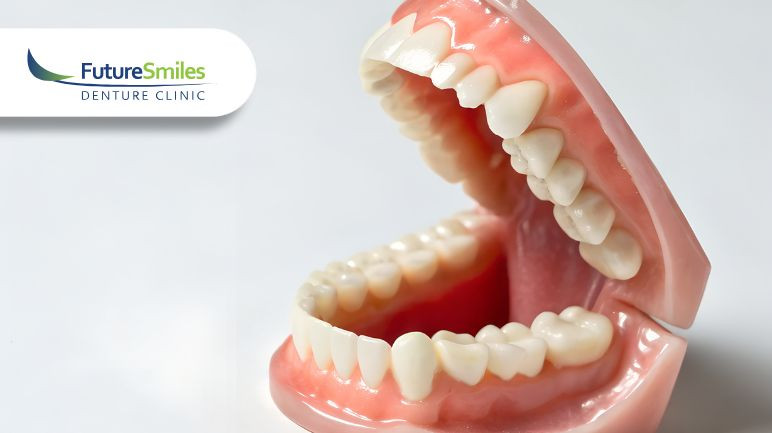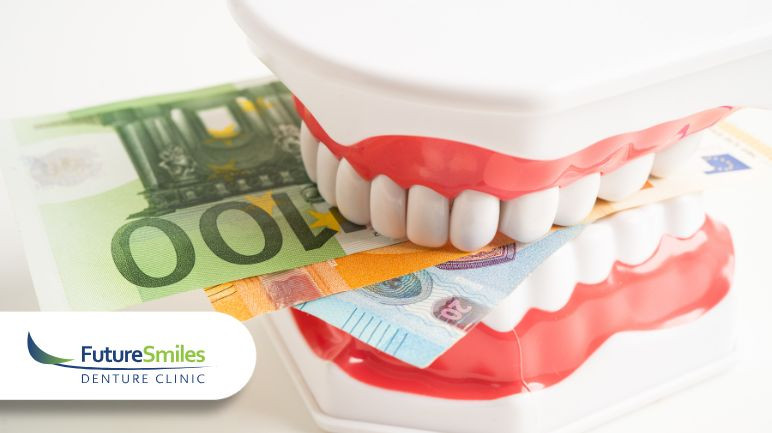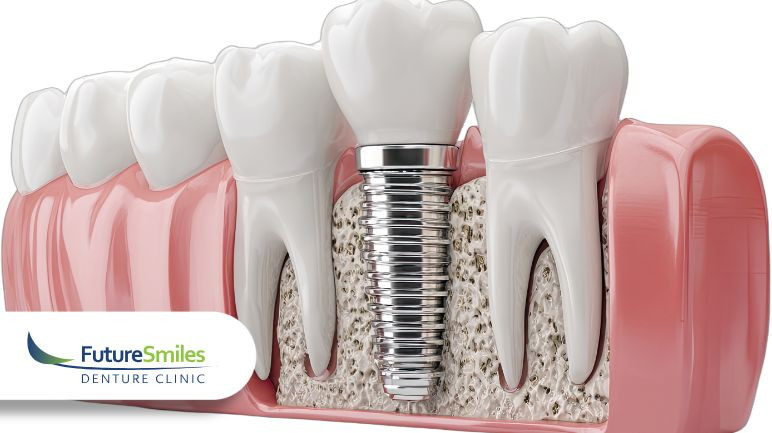Despite advances in dental care, millions of Canadians still suffer tooth decay and tooth loss. Losing a tooth can be a devastating experience. It can be uncomfortable, painful, and cause trauma to surrounding teeth making everyday tasks such as chewing, biting, and talking difficult. Thankfully, implant-supported dentures are an effective, long-term solution that has come a long way in recent years. Denture implants are designed to look, feel, and function like your natural teeth so you can be confident with your smile. They also provide better long-term value than conventional teeth replacement options such as dentures.
BOOK AN APPOINTMENT CALL US TODAY
What Are Implant-Supported Dentures?
When the tooth root goes missing, the jaw begins to soften and shrink since the shape is not being maintained by the missing tooth roots. Implants act as artificial tooth roots, stopping the deterioration and helping the jaw maintain its shape and function. Traditional dentures sit on top of the gumline attached by adhesive whereas implant-supported dentures use the implants for support and are embedded into the jaw bone to keep it from atrophying.
Implant-supported dentures look and feel like your natural teeth. Taking care of these dentures is the same as taking care of your natural teeth and they can only be removed by your dentist. There is no adjustment period required and you will be able to enjoy foods such as raw vegetables and tougher meat, unlike traditional dentures that come with diet restrictions because they are not durable enough to handle certain types of food.
At our NE and SW Calgary-based clinics, we offer a wide range of denture services and thrive on giving our clients their smiles back. While it’s always best to discuss your options with a denture professional, If you’re a good candidate for dental implants, they can have many benefits from enhancing your smile to even helping you live longer by improving your quality of life.
3 Pros About Implant-Supported Dentures
Retain Bone Density
When you lose a tooth or several teeth, you may lose bone mass as well. Your jawbone requires the roots of your teeth to maintain its shape and proper function. Denture implants replicate this structure with the use of artificial tooth roots so you do not experience any deterioration of the jaw bone. This will enhance your appearance as well as make tasks like chewing and talking much more comfortable.
Durability
Your chewing ability will greatly increase with implant-supported dentures. Like your natural teeth, the denture implant derives its function and strength directly from the jaw bone. As they act more like your natural teeth, you will have a stronger bite force than you would with traditional denture options. Also, you will not need to restrict your diet, allowing you to enjoy all of your favorite foods without worrying about damaging the denture or causing pain.
No Embarrassing Slipping
Relieve your anxieties about eating out in public or laughing out loud with implant-supported dentures. Many patients with dentures feel self-conscious about wearing their dentures out in public because they are afraid people will notice a visible shift or movement of the denture in their mouth. Thankfully, denture implants are very secure and you will not have to worry about your denture accidentally slipping out of your mouth or causing speech issues.
3 Cons About Implant-Supported Dentures
More Expensive Than Traditional Dentures
These dentures require a more complicated application, therefore they cost more. Implant-supported dentures offer more stability and have better functionality than traditional dentures which can be more appealing even though they come with a higher price tag.
Jawbone Density Is Required
Patients with poor jawbone density may not be good candidates to receive implant-supported dentures. As soon as a tooth is lost, the jawbone begins to deteriorate. If left untreated for too long, the jawbone may not be strong enough to hold a dental implant in place. However, there are bone grafting procedures that can be done to restore the jawbone and allow for implant-supported dentures.
Denture Implants Require A Longer Healing Process
After the implant procedure, you will be required to wait 3-6 months to allow for osseointegration of the implant into the jaw bone. To ensure the survival and proper function of the implant, you must wait for the implant to integrate into the jaw bone so it is properly secured. After 3-6 months, you will be able to attach the denture and have functioning, natural-looking teeth.
Contact Future Smiles Denture Clinic To Learn More About Our Denture Implant Procedures
While getting surgery to receive implant-supported dentures may not seem ideal, the long-term benefits far outweigh the short-term discomfort and healing process. With modern innovation in dentistry, more patients can benefit from these implants, even those who were formally told they could not.
If you need affordable dentures in Calgary or would like more information about our implant-supported dentures, Future Smiles Denture Clinic has you covered. Just get in touch with our helpful denture team by calling 403-475-0016, by booking a FREE consultation, or by visiting our Coral Springs NE or Macleod SW Calgary clinics. We'd love to make you smile again!
FAQs
Q: How long does the denture implant procedure take?
A: Your dentist will begin with surgically placing each implant into your jaw bone. It usually takes 1-2 hours per implant. After surgery, you will have to wait 3-6 months to allow the implant to fuse with the jaw bone. Once this process is complete, your dentist will place and secure the denture on the implants.
Q: Does denture implant surgery hurt?
A: The complexity of the procedure may have an impact on post-treatment pain and soreness. You may experience bruising, swelling, and possible residual bleeding after the surgery. The discomfort and pain will usually go away after 7-10 days.
Q: How do I know if I am a good candidate or not for denture implants?
A: Visit your dentist so they can examine your mouth and determine if there is enough jaw bone density to withstand holding the implants in place. Your dentist will be able to give you a better idea of what denture options are available for you.






